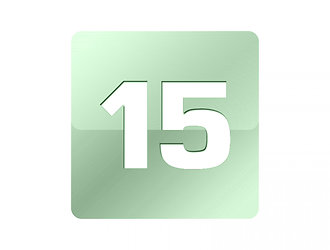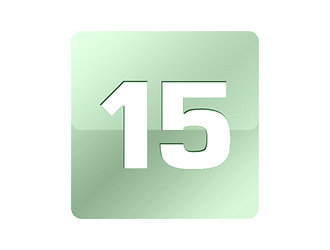Has he ever regretted refusing all the tremendous glory? Never. Knopfler, who is having a concert in Vilnius on Thursday, says that you can learn every day – from your success, from your broken heart or even from your dog, and every single decision we make in life gives us vast opportunities and new experiences. “There's no end to what you can do if you know what you want to do and what gifts you want to develop,“ said the musician in an interview with 15min.
- I was quite surprised when I checked your social networks and saw a lot of political messages – your lyrics don’t look political at all... Have you ever considered writing some songs with political or social messages?
- That's a good observation. I've rarely found that song-writing is a particularly apt medium for political discourse. I do have a couple of political songs, but I don't tend to think that you achieve much by ranting about things. People don't change except very incrementally. You can move someone 2 degrees but not 20. Art is not about “facts“. It's more about delving around in more intuitive waters and seeing if any treasure might be buried down there in the mud. If it resonates with others, then great.
- Some of your songs are really quite spiritual; listeners can find even biblical references. Were you raised in a religious family?
- Absolutely not. I've probably only attended a couple of religious services in my life. It's probably easier in some ways to have a spiritual aspect to your being, if you're not already snared on the rocks of one of the thousand varieties of thou shalt and thou shalt not. There's nothing better assured to make the mystical mundane than having it jammed down your throat daily. Joseph Campbell said that religions are all just a metaphor for the thing that lies behind them so don't get stuck with only the metaphor or you'll miss it. When I wander into a Cathedral, or Temple somewhere on my travels, I can light a candle, and drop a few coins in the slot, without worrying about the protocol.
- I don‘t think any of your interviews go without mentioning “Dire Straits“... I know you said you have never regretted leaving the band. But have you ever regretted starting it in the beginning? Have you ever dreamed what it would be like not to have this “Dire Straits“ shadow behind you?
- What an interesting question. No, I've never really been one to second-guess my life choices. We all make choices that take us down one road rather than another. I had a golden labrador once called Luggage and when I took him for a walk, I learned something very useful from him. If we came to a fork in the path, and I decided to take one route not in preference to the scent he was following, he very quickly adopted an excited flexibility about the change... “Ooh yes... lots of nice smells down this one too David! Good call.” Basically both paths were absorbing and exciting to him and he didn't waste a moment regretting the path not taken because the new path offered lots of intriguing possibilities, and even if I reversed myself 3 times he accepted it all – he was just high on life and on being out and living it.
Without “Dire Straits” I might have never learned what I needed to learn to make the most of the choices I've had since. In a similar way, without the personal relationships that didn't fully satisfy all aspects of the rich tapestry that love offers, I might never have worked out exactly what it is that makes a relationship really rewarding and then gone about finding it. Or been ready to play my part fully in giving to it.
We learn as much from the stones and thorns on the road as the easy passages. It doesn't mean we embrace them gratefully when life throws us a curve ball, it just means you might as well use the “down time” usefully.
- How the music you like has changed through the years?
- My sister, who is six years older than me, introduced me to Bob Dylan when I was still very young. I guess I was about eleven, and that pretty much set the parameters for me. She also introduced me to poetry and generally had a rather positive effect culturally on me. Dylan, quite aptly, wrote in one of his songs “I've made shoes for everyone, even you, while I still go barefoot...” and it's probably true. I was never very interested in instigating some sort of musical revolution... People like that, say Jimi Hendrix, have a habit of dying young. I've been generally content to plough the singer-songwriter furrow, without feeling the need to re-invent the wheel.
- You seem such a busy artist – you’re independent, which gives you a lot to take care of, you paint, you write poetry. What makes you move forward, look for new ways to express your creativity? Do you have any muses – real or fictitious?
- Haha, yes I've had both at different times. For many years I lived with a very rich interior landscape I could escape to – and as often as not my songs from that period contain fictionalized characters, often female. Though obviously, like any writer, they'd be drawn from experience to some degree. They might be amalgamations of several people though. Or just a complete construction from one sentence I'd heard someone say. As I got into my fifties, I found increasingly that I didn't really want to work in this way, because my life itself was changing so much, and my work became perhaps a little less obtuse and generalized (not that there's anything necessarily wrong with that) and a bit more concrete.
Like all recording artists I started out on the journey by walking in the footprints others had made and it took a long time for me to notice that one day I was making my own footprints, albeit in sand and only with enough resonance to last until the next tide came in. Robert Frost compares the process of writing blank verse to that of playing tennis without a net. You first learn the rules so that when you break them, there's some consciousness and deliberateness to it. I would say that's the second phase of creativity.
And then there's a third and last phase, where you just don't care to do anything but let the work dictate it's own demands even if all the rules get flouted. But there's no shortcut to that place. You have to pay all your dues to get there, or it simply won't have the authority and substance to stand up. Dylan recently recorded a song with about 50 verses, no choruses and no middle eight. If I was teaching song-writers the craft, I'd absolutely NOT be drawing their attention to that track. I'd be looking for examples that work completely within the codified notions of how a successful song is constructed. If later they want to break the rules, fine. But at least learn AND MASTER them first.
- Is being and independent artist help or create obstacles for creative writing?
- Both. It's a tricky line to walk. If you starve in a garret, you might write some excellent work about starving in a garret, but if you don't swim in the real world, you won't get the opportunities to record it. And if you have too much success (commercially speaking) as some do, it becomes harder for them up on the hill, where the rich folks live, to stay aligned to the vibe of the valley. A song about the pool-boy being 30 minutes late, or the personal assistant inconveniently taking a day off to attend their mother's funeral, isn't really going to resonate with too many people. Historically, there were advantages and disadvantages to being in Babylon, signed to a major label. But increasingly, the big labels became just distribution houses and then with the Internet, they became Titanics with no game plan and waiting for the iceberg.
- For good two decades people have been complaining that contemporary music can't even compete with masterpieces from the 70s and 80s, that in this century, musicians are singing about high-heels and one night stands and forget about deeper meaning in their songs. Do you agree?
- Today's superficiality was always around. It's just that, over time, the work that still resonates is remembered and the fluff has been largely forgotten. Even the geniuses leave only a few pieces to be remembered by.
The changes in the business have made it a great deal harder for the more serious heavyweights to get funding. There are almost no studios left. I last hired an orchestra about a decade ago... that kind of expense just can't be justified, if there's no feasible way to sell records in the kinds of numbers they sold in the eighties. Everyone has trimmed their sails, so historically yes, we may well look back to the “Steely Dans” and the Joni Mitchell's in the seventies, as a high water-mark in audio-fidelity and artistry – the last great analogue records before the deluge of digital arrived. I'm not a social-historian but you may be right.
- What are the reasons of these changes, in your opinion?
- Ronald Reagan and Margaret Thatcher and the era that thrust them upon us as “leaders” also brought a certain crudity and destructiveness to the world of culture in their blunt cash-nexus, narrow, intolerant ways of thinking. There is now an established conservative thought pattern, for a great number of people, that things they have failed to grasp and appreciate must therefore be excremental and elitist and not worthy. Compare the era of the Kennedys in the White House having the best people in each field of human endeavour come to an evening of entertainment and mutual education, to the depressing banality, reflexive mindlessness and breath-taking complacency of George W. Bush's presidency and it isn't hard to see what direction the US Empire is taking. The same age of narcissism beset Rome before its fall. Sooner or later, something else of substance will fill the vacuum left.
- Last year, headlines were screaming “rock'n'roll is dead” since rock songs in the charts fell to lowest level in 50 years. Can you imagine rock music regain its supremacy?
- I don't ever want the past to revisit us. That would be like digging up corpses and running electric shocks through them to try to make them gibber – it's a kind of disgusting idea. We move on and we deal with what is real. Otherwise you may as well take opium and sleep the rest of your years away.
- What’s your opinion about the slowly rising revolution in music – more and more artists do not seem critical of piracy, they decide to allow people to download their music for free, etc. Do you think music industry needs to rethink its strategy? Or is it just a contemporary trend?
- If you're starting out on your career, you might as well put all your energy into raising your profile, regardless of the loss of copyright royalties. As you get more established and have a family to feed, you will no doubt hold back as much of that free work as you can.
- A lot of independent artists struggle to live on their music. Any advice for them? Is it more about hard work or luck when one is trying to become a well-known artist?
- Luck can play a part, of course, someone has to win the lottery but it wouldn't be wise to live each day hoping for our ticket to be the winning number. While waiting for that particular ship to come in, you could be improving your talents and facilities of self-expression in all areas, with plenty of perspiration. Aspiration and wanting something badly creates tremendous energy and resonance. Once you know that you HAVE to have that special guitar, you will move Heaven and Hell to possess it. There's no end to what you can do if you know what you want to do and what gifts you want to develop. As with nature, the business of doing it tends to leave those without the fortitude to stick at it, by the wayside. Sheer bloody force of will can create a lot of energy.
- Probably all of us has a “golden age” – a period of time when we felt at our best, the world looked welcoming, and life seemed as auspicious as never. Was there a “golden age” in your life?
- I don't do nostalgia. For me, looking back seems very counter-intuitive. I'm much more interested in what's going on around me now than tomorrow or yesterday. That said, as I approach sixty, I'm well aware that I'm already a decade into my last act. So if there's itches I still want to scratch, I'd better be doing it now. Mostly I just like to enjoy each day and work and be around people who have some grace and eloquence to the way they live their lives, so we don't generate friction and stress. The strongest rivers flow faster and more powerfully in their third act, when they appear to be doing almost nothing, whereas all those noisy babbling brooks up in the mountain don't even know which direction to follow to find the great water.
- You’re singing about “Ship of dreams”. Where is this ship taking you?
- It absolutely took me to the place where the love of my life lives. Though it wasn't the journey I thought I was writing about, that's for sure. The universe is usually smart enough to withhold from us the things we think we desire and give to us the things we actually need. May we all be smart enough to recognize the grail and where and how to chase after it, even if in the event we don't locate it, because on that quest are lots of fine things to be found, as my aforementioned dog well knew.















